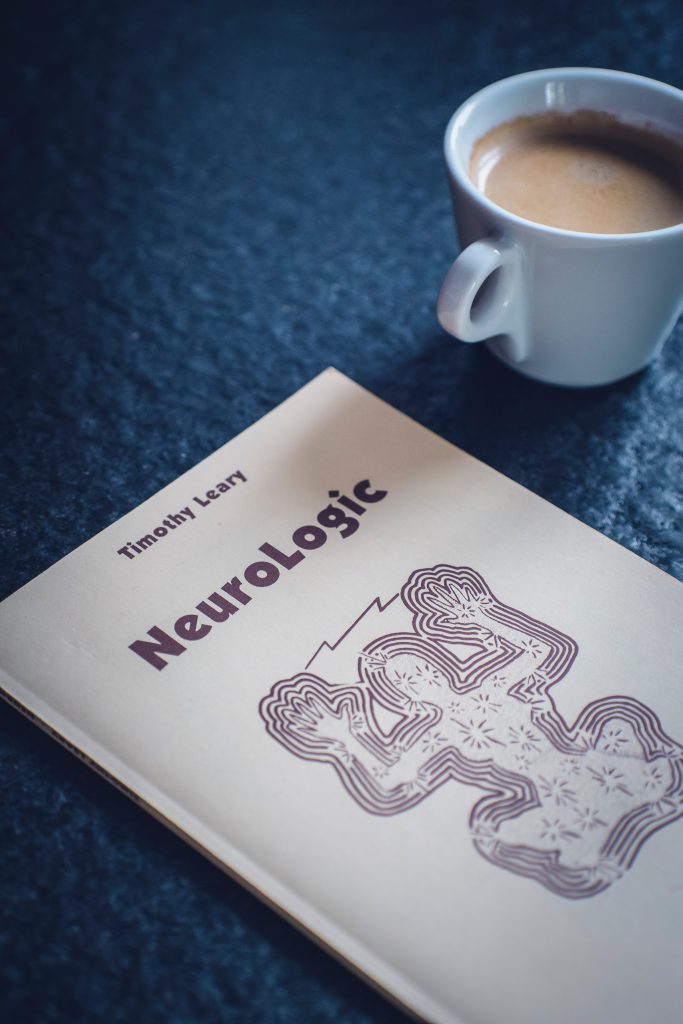Language Myths
Myth 1
Myth 1: Meanings of words should not be allowed to vary or change.
This chapter dives into the constant change of language over the years and attempts at making an argument for both sides. It states that the side opposing language change feels that change in language is inherently undesirable and can be dangerous and confusing.
It is quite soon after this statement that we conclude that changes in language usually don’t create any form of confusion, context gives words with multiple meanings the information you need to decipher the intended meaning. One argument to make for the unintended change in the meaning of words is that sometimes words are misused out of ignorance. Someone hears a phrase or word and starts using them wherever they can, without completely understanding the meaning and origin of the word. The chapter concludes beautifully by stating that words do not mean what we as individuals might wish them to mean, but what speakers of the language, in general, want them to mean. I couldn’t agree more with the closing phrase, language is self-sustaining. Where confusion strikes, authors, linguists, and speakers will guard against possible misinterpretation. The youth of today is our major driving force in this endeavor. There is a cornucopia of words that have been coined in the past three decades that would not have existed if it wasn’t for the youth of those days, pushing boundaries and looking for new ways to express themselves.

Myth 2

Myth 2: Some languages are just not good enough.
This chapter looks at the idea that some languages just don’t cut it as a lingua franca. Discussing the several arguments that one could make for a language to not be good enough. As they beautifully describe in their example of nuclear physics. “X is not good enough because you can’t discuss nuclear physics in it.” Implying that English is better because we can discuss that topic with the language.
People who think along these lines seem to forget that language, all language has a purpose and is a tool. A tool for humanity to express and relay ideas with each other. No language is better than another, however, some languages might have better use for certain purposes. If a language has a need to discuss a topic it will develop the needed vocabulary to do exactly that. I feel that this myth is one that has been put into the book because it may have been relevant during that time. Personally, I have never encountered anyone that was convinced that any language is better than another. Most people seem to agree that English, for example, is a good language to use all round. But somethings we are just unable to describe in English. Take the German word ‘Torschlusspanik’. It describes the feeling of urgency one gets when we get older, and we realize we haven’t achieved in our lives what we hoped to. A beautiful thing to have a phrase for, but does the English language have something similar? Not to my knowledge, therefore, German is a better language to talk about your life.
Myth 3
Myth 3: The media are ruining English.
After reading this myth, I strongly feel it has a strong connection to myth 1 (the meanings of words should not be allowed to vary or change). Ignorance of how language changes are given as one of the main causes of the posed issue. As the myth describes that the “worriers” believe that media is at the forefront of destructing (changing) the English language. One example mentioned is the correct usage of you and me versus you and I. Where several examples of the wrong usage of these terms are given, it is also explained that it is not a new phenomenon. Over time, newly posed phrases and meanings will eventually push out the old ones, the media do not spearhead the change, they reflect and amplify it.

Myth 5
Myth 5: English spelling is catastrophic.
The conviction that English spelling is catastrophic stems from the ignorance of underlying phonetic rules. The spelling of letters and the accompanying sounds are separate entities. For example, one speech sound may have different spelling in each instance. You will often hear that there are around five vowel sounds in English, however, when we study the reality of the situation, we can safely state that there are around twenty vowel sounds, depending on your accent. Spelling might not always be consistent compared to the phonetic notation, but it is usually logical when one studies the phonetic rule system. Meanings of, for example, homonyms are usually given through context. Allowing the reader to determine what the author meant.
Myth 8

Myth 8: Children can’t speak or write properly anymore.
This myth seems to stem from the belief that both spoken and written literacy has been in steady decline over the decades, it is easy to say that this might be the case when we look at individual situations such as accents. However, to state that people speaking different forms of the same language equals literary decline is false and nearing discriminatory. The people that seem to be under this impression believe that there used to be a time in which children were more capable of writing and speaking, regarding spelling, grammar, and pronunciation. When we look at the facts and researches on this topic over the years, we see a clear distinction, literacy has increased steadily and especially children seem to do a lot better when looking at reading. Complaints about the decline of literacy have been around for well over a hundred years, with that in mind we can assume that is something that will keep coming back, no matter how much we increase the educational standard.
The last few sentences of the myth describe this beautifully. “In an age when discrimination in terms of race, color, religion or gender is not publicly acceptable, the last bastion of overt social discrimination will continue to be a person’s use of language.” (Language Myths, p. 65).
Myth 10

Myth 10: Some languages have no grammar.
This myth is one that I had trouble understanding, I failed to see how anyone could be under the impression that some languages have no grammar at all. As described in the myth, we see the same idea from the author, a language has grammar. Regardless of how some people might feel if a language has a set of rules for speaking, word order and word classes it has grammar. Grammar is simply put, the guideline we use to communicate clearly, we use grammar to assure ourselves and the recipients of the intended meaning and message. Of course, I do believe that there are discrepancies like observed in irony or sarcasm for example but those are outside of the realm of grammatical rules. Languages have and utilize grammar in different ways, specific to that language’s need as we can observe in both Latin and Chinese compared to standard English.
Languages do grammar has rules (obviously an intended pun).

Myth 11 & 13
Myth 11: Italian is beautiful, German is ugly.
The myth that one language sounds better, or more beautiful than another. Is something that I have encountered repeatedly in everyday life. As described in the myth, “too many speakers of a certain language and dialect are brought up believing, sometimes via ridicule and abuse, that their way of communicating is grossly inadequate.” (Language Myths, p. 87), this statement I do wholeheartedly agree with. During my youth, I have also been told that my accent (plat Drents) is ugly, and not to be spoken outside of the house. Now I would not say that all languages and dialects are equally beautiful, for I too have my opinions on certain languages. Much like our standards of beauty, I believe that the attractiveness of sounds is in the ear of the beholder, everyone has their favorite languages to hear.

Myth 13: Black children are verbally deprived.
This myth, to me, is a clear combination of previously discussed myths. As stated in my review of myth number eight in week five, “In an age when discrimination in terms of race, color, religion or gender is not publicly acceptable, the last bastion of overt social discrimination will continue to be a person’s use of language.” (Language Myths, p. 65). This myth seems to continue that trend, where a group of people seems to be under the impression that a certain community is suffering a deficit or are inferior to their subjective standard. The book beautifully describes that the verbal art is an integral, pervasive and highly valued component of black culture, something that is easily noticed in modern-day society. From lyricists to motivational speakers, historical figures and accounts of their speeches, all prove this point to be true. The distinction the opposing group seems to make once more fails to look at the complete picture and empirical facts attached to it. I would say that myths such as these, are recurring only; because our society keeps creating situations in which we separate, discriminate and oppress certain communities.
Myth 14

Myth 14: Double negatives are illogical.
One could argue that the usage of double negatives in language can cause misunderstanding and conflict. However, quite soon in the chapter, we find that context of the sentence is usually enough to clarify the meaning of a statement. Mathematical negatives are far from the same as linguistic negatives, but it seems that the group of people in favor of ridding our language of double negatives forget this distinction. Often referring to logic as the base of their argument, overlooking the underlying linguistic logic that is used to create sentences, both universal and existential quantifiers play a role in the clarity of double negatives in sentences. They might not appear logical to some, but linguistically they most definitely are. It is rarely appropriate to use cold logic when looking at the use of a language, doing so will only create conflict between opposing sides. Double negatives in both written and spoken word have been around for ages, just like the idea that those double negatives are illogical or ungraceful. Opinions on the subject are and will continue to be divided.
Myth 15
Myth 15: TV makes people sound the same.
This myth seems to have a lot of similarities in argumentation as the third myth discussed in week three (the media are ruining English). Mass media most definitely has a role to play in the spread of vocabulary items and it does so relentlessly, but to state that TV makes everyone sound the same is wrong. If this would have been the case, then sure, by now everyone in the English spoken world would have the same dialect. The 60 or so years that television has been around, only the past thirty years have we seen the effects of mass media on our cultures, language and society. If mass media had any effect on the generalization of sound in spoken language, the results of this would have been much more apparent.
Myth 18
Myth 18: Some languages are spoken more quickly than others.
The idea that some languages are spoken more quickly than others is something that I would agree with. However, I would also state that it is a subjective observation. How a language or dialect sounds to non-native speakers is a big factor in this, Spanish, to me is a language that is spoken quickly but when I asked my Spanish friend to slow down so that I could understand her better. She told me she was already slowing down to pronounce words more distinctly for me. This situation does show me, that my perception of spoken speed is subjective. Do we not all recognize that in some situations, we speak faster than in others? When we are in a heated discussion we may speak faster and with more fervor, when we feel sad or misunderstood, we may slow down our speaking and lower the volume of our voice. The book gives us no discernable answer to the methods posed; all seem to be lacking in accuracy. Only further research will give us the answers we seek.
